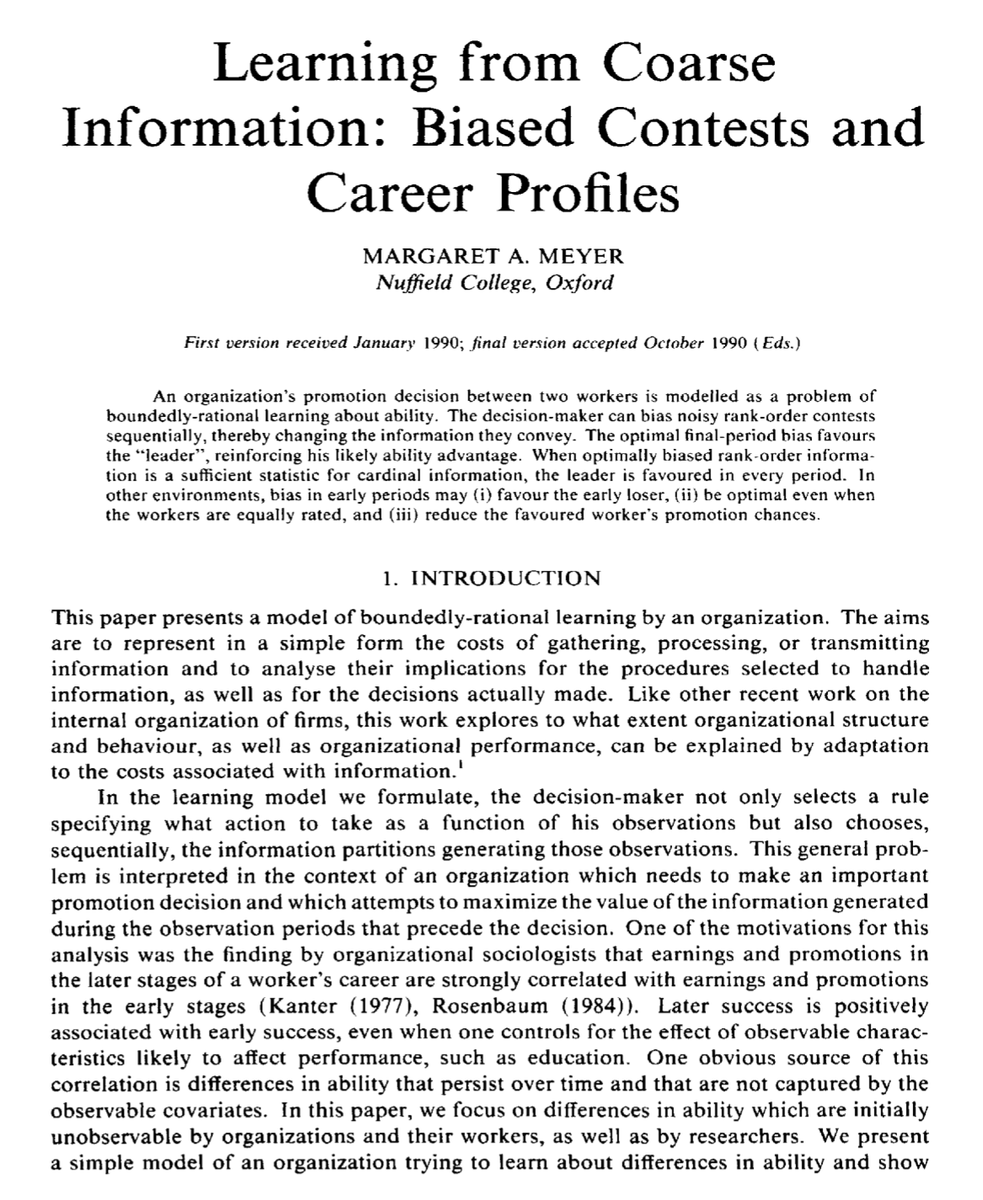
Sometimes faculty complain about the stubborn Ph.D. student, who seems unaffected by advice. Talent and energy are risk factors for this disease, and, worse, is closely related to personality traits of many successful academics.
A few random thoughts.
1/
A few random thoughts.
1/
What "bad stubborn" looks like from the advisor perspective is that you thoughtfully engage with the work, repeatedly say something (that you feel is) REALLY IMPORTANT that should affect the project, and perceive it not to be affecting the project or the student's thought.
2/
2/
A friend wishes they could tell students one cheat code for success. When faculty say, "This seems like a question you can answer in your project and people would really care about the answer," *actually try to do that*, or at least have serious conversations about it.
3/
3/
What makes this a challenging issue is that an idiosyncratic intellectual prejudice about what's interesting and/or important is often the seed of important work. Being too flexible about taking directional suggestions can stifle that.
4/
4/
Nevertheless, my one nontrivial observation is that it in these cases, it can be greatly to a student's benefit to think of the advisor as a sympathetic critic who wants their concern to be understood and engaged with deeply, not agreed with.
5/
5/
This often requires a mental move which I think is unambiguously useful: letting go of the lens through which you see your contribution (where the concerns seem marginal or mistaken) and finding one through which the advisor's concerns REALLY make sense and feel central.
6/
6/
I think on the whole that capacity is more helpful the more creative your work is. It provides some insurance against getting into a mental place where you have trouble even really talking to colleagues in a productive way.
7/
7/
Stubborn students' first attempts at this are often unsuccessful, because they look more like projecting the concern into their own world and dealing with it in a way that makes sense only to them. The more confident you are that this is not your solution, the better.
8/
8/
This has all been assuming that one's core ideas are really good. A more mundane possibility is that advisors have research ideas better than your own that they don't have time to work on and give them away for free. Ignoring them can be a serious mistake!
9/
9/
Obviously my perception (on both sides) is very specific to my own area/experience.
(Writing this now because there happen to be no students I work with now who could misread this as applying to them but just in case -- this is not a subtweet of anyone, near or far.)
10/10
(Writing this now because there happen to be no students I work with now who could misread this as applying to them but just in case -- this is not a subtweet of anyone, near or far.)
10/10
Friends tell me my writing is obscure!
It's supposed to be advice to students: having a strong viewpoint is cool, but don't be stubborn. Don't assume your advisors just don't get it. Really persuade them. Also, consider that their suggestions may give you a better project to do.
It's supposed to be advice to students: having a strong viewpoint is cool, but don't be stubborn. Don't assume your advisors just don't get it. Really persuade them. Also, consider that their suggestions may give you a better project to do.
• • •
Missing some Tweet in this thread? You can try to
force a refresh







